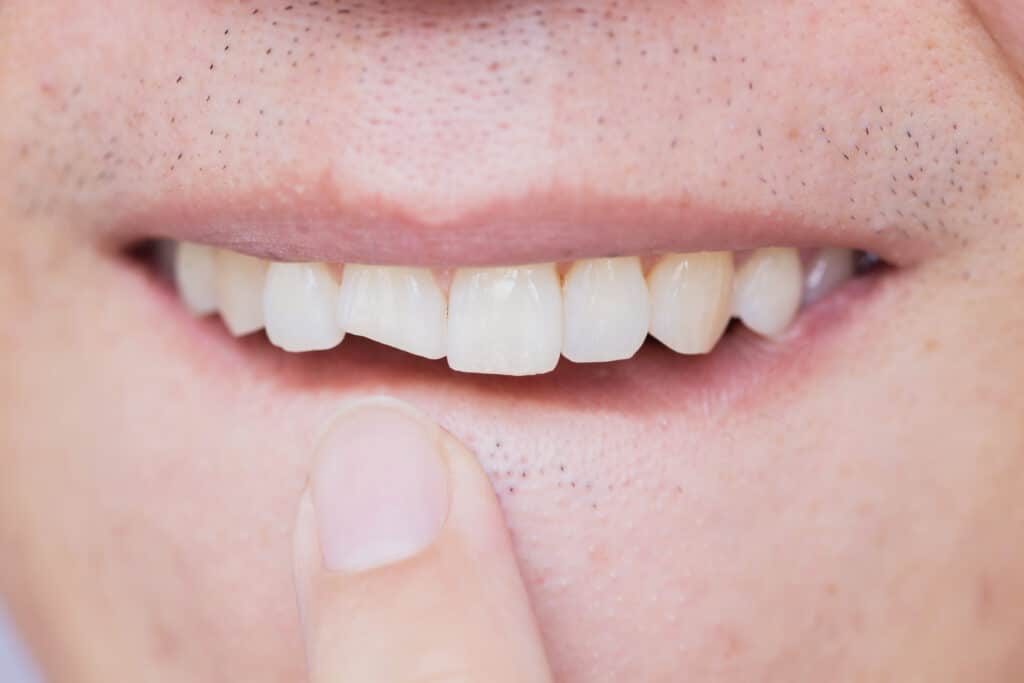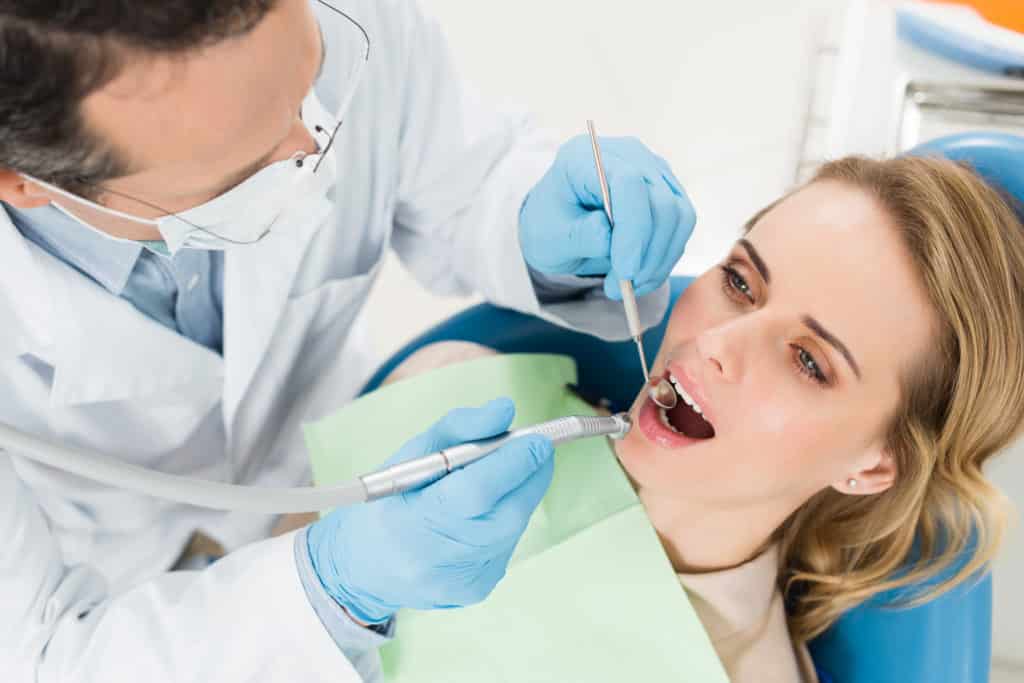Many people lack knowledge on how to handle dental emergencies. Many common dental emergencies rely on quick action to provide the best outcome.
Here at Leavitt Dentistry, we are dedicated to providing you with the information and resources you require to protect the health of your smile. Here are some things you need to know about dental emergencies and what actions to take when you experience one.

How to Recognize Dental Emergencies
Severe pain and inflammation in the mouth, face, jaw, and neck, along with bleeding, often indicate dental emergencies. However, it is important to remember that in some situations, such as when your gums bleed when you first begin to floss, bleeding is not necessarily a sign of an emergency.
If you experience pain when biting down or chewing, loose teeth, or swollen gums, it is important to contact our office to determine the next steps. Remember that you need to visit us, not the emergency room, when experiencing a dental emergency. We have the equipment and experience necessary to provide the best outcome for your teeth.
Knocked-Out Teeth
Knocked-out teeth are the incidents that most people immediately think of when they hear the phrase “dental emergencies.” You may think that having a tooth knocked out is unfixable, but this isn’t the case. While it is crucial to act quickly following a dislodged tooth, there is still a chance that your smile can be saved.
First, you need to take care of the tooth that has been dislodged. Ensure you handle it only by the tip (the surface you use to chew) rather than the root. This helps to prevent bacteria from getting inside the tooth. You can rinse the tooth with water, but you shouldn’t scrub it, which can lead to damage.
Next, it is important to preserve the tooth and prevent it from drying out until it can potentially be reinserted. There are multiple ways to do this. It is generally best to try to reinsert the tooth into its place in the gums if possible. Other methods include submerging the tooth in a milk or saliva solution to prevent it from drying out. It is critical to see us immediately after having a tooth dislodged. The chances of saving the tooth tend to be greatest within 30 minutes of having the tooth knocked out.
Abscessed Teeth
Abscesses are infections between the tooth and the gums or around the tooth’s root. These dental emergencies can damage surrounding teeth and oral tissues. Rinsing with a saltwater solution can assist in easing the pain, but it is still important to make a trip to our office. Not only is it important to obtain prompt dental treatment to prevent damage to your oral health, but it is also important to remember that infections can spread to other areas of the body. Seeking medical help from us minimizes the spread of damage.
Cracked Tooth

Many dental emergencies are easily recognizable. Still, sometimes, it can be difficult to tell the difference between a truly urgent situation and something that can wait until you can get an appointment.
One of the major issues with cracked teeth is that they can be initially difficult to detect, especially when the crack isn’t located in an easily visible area. Understanding the signs of cracked teeth will help you obtain the necessary care before the problem escalates. If you have noticed the signs of a cracked tooth, you should schedule a dental exam to resolve the issue.
Cracked teeth tend to cause fluctuating levels of pain. Sharp pain in the cracked tooth will likely surface when eating or drinking, especially when the substances are particularly hot or cold. Ice packs and over-the-counter medications can help ease discomfort; however, you should never put Aspirin or other painkillers directly onto the gums. This can burn the gum tissue, causing additional problems.
Stuck Objects in Teeth
An object that becomes stuck in your teeth can be incredibly painful. Try using dental floss to gently remove objects wedged in your teeth. Don’t force it out, and don’t use sharp instruments. These implements can exacerbate damage by scratching your gums, cheeks, and the surface of your teeth. If you cannot remove the object yourself, you should visit us to obtain the appropriate care.
Canker or Oral Sores
Canker or oral sores are very common. Possible causes include burns from hot foods or drinks, irritation from dentures or braces, and accidentally biting the inside of your cheek. No matter how the sore developed, they are likely to be very painful. You can help to manage the pain with a cold compress or over-the-counter medications.
It is crucial to keep your mouth clean when you have a canker sore to prevent food particles or bacteria from entering the wound, which can lead to infection. Antiseptic solutions can aid in accelerating recovery time. The most common antiseptic solution is a saltwater rinse, but certain drugstore medications are also specifically designed to protect the area and accelerate healing.

Preventing Dental Emergencies
Certain dental emergencies may be unavoidable, but there are steps that you can take to reduce the likelihood of them occurring. Avoid chewing on particularly hard substances, such as popcorn kernels, candy, or ice. You should also ensure that you always use scissors rather than your teeth whenever you need to cut something. Finally, wearing a mouthguard when playing sports and practicing good oral hygiene can go a long way toward protecting your oral health.
If you think you are experiencing a dental emergency, it is important to obtain the appropriate treatment. To learn more about our services for dental emergencies, contact Leavitt Dentistry today!

